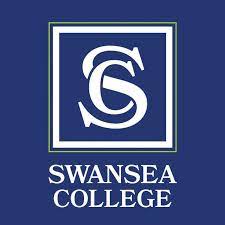Project Description
COURSE OVERVIEW
Students who study Biology at A level learn the fundamentals of the cell, Biochemistry, Ecology, Physiology and other key elements of subject so that they can go on to study subjects at degree level such as Agriculture, Biochemistry, Biomedical Science, Genetics, Ecology, Medicine, Dentistry, Neurology, Physiology and Zoology. Whatever you study, Biology at Advanced level will be hard work, but always fascinating, engaging and relevant to you, and above all, this planet.
What subjects combine with Biology?
Chemistry, Physics, Mathematics and Psychology
- A complete coverage of the course specifications, accompanied by a list of learning objectives and mind maps.
- Engaging weekly learning videos that help students build, apply, and review their understanding.
- Interactive power points, worksheets, homework, and mark schemes to solidify understanding of key concepts.
- Regular assessments every 6 weeks to track progress.
- Mock assessments with detailed feedback to help students prepare effectively.
STUDY OPTIONS AND FEES
Course Structure:
- an engaging online interactive learning course
- weekly learning videos
- variety of learning materials: video lessons, power points, e Textbooks, mindmaps, worksheets and homework along with mark schemes (self-marking)
- 6 key assessments
- 2 mock assessments
- feedback provided after each key assessment and mock assessment
- comprehensive revision and exam preparation lessons
- drop in support session every 2 weeks during term time
- enrolment: September and January although students have the flexibility to enrol at any time throughout the year.
Additionally students have the option to;
-
College/ UCAS Application support
Course Fees
One year course £1200
Two year course Year 1: £1200
Year 2: £350
The cost of the A Level Biology course is £1200 for a one-year course. However, we also offer the option to study the course over two years. In this case, you would pay the one-year course fee upfront, and then top it up with an additional fee of £350 in the second year.
Payment Options
How to Apply?
Register for your exams
Choose your Science Practical endorsement option:
- Complete Science Practical endorsements with Swansea College
- Carry forward from previous exam series (evidence required on application)
- Complete Science Practical endorsements with BioGrad
- If you opt out of practical endorsements. Your results certificate will display Not Classified (you must check the entry requirements for the university course you wish to study and see if the practical endorsement is a requirement)
COURSE CONTENTS
Syllabus
ASSESSMENT
Entry Requirements
GCSE Biology Grade C or above
Mock Assessment
Exam
You will be awarded up to 56 UCAS points per A Level
Have a question? Ask our virtual assistant on live chat below
or call us on 01792 535000 and speak to our experienced Student Adviser.

